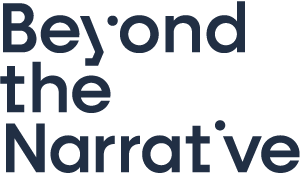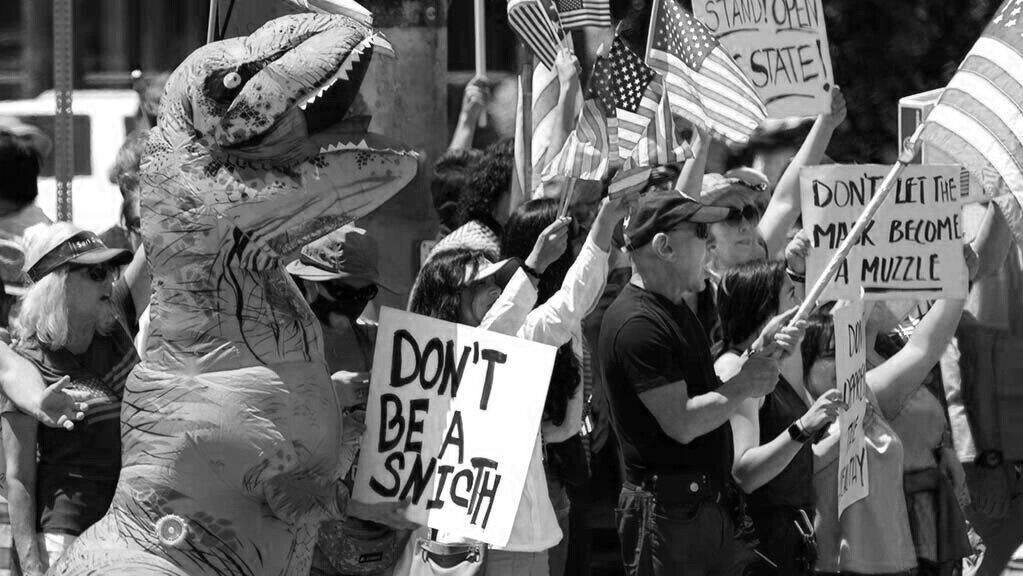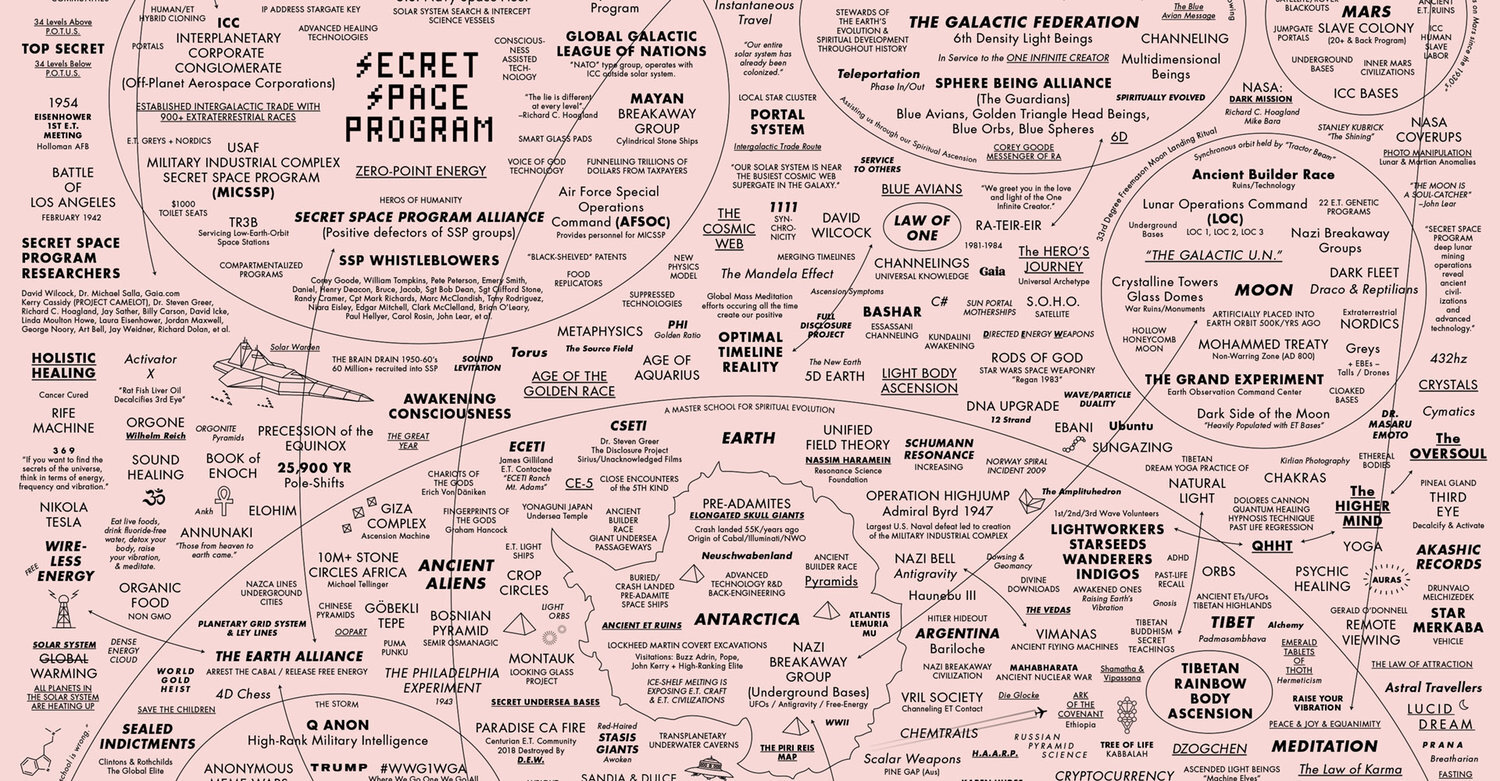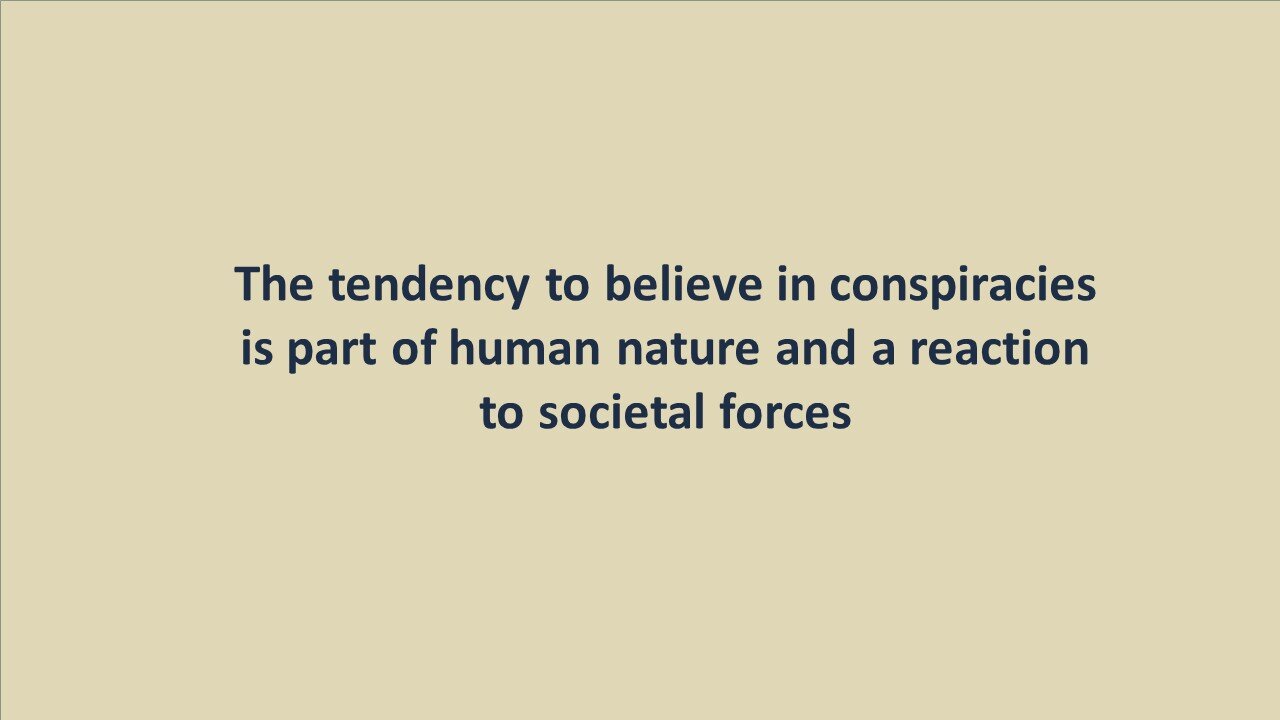Conspiracy theories flourish in times of crisis
Image Source: The Times of San Diego
“Conspiracy theories tell us about ourselves — what we believe or doubt, and what we fear most. The conspiracy theories that surround the Coronavirus pandemic are no different, centering on existing concerns about globalization, new technology, and perhaps our most ancient horror: disease.”
Source: Vox
Conspiracies fly in the face of facts and reason. But while we can ignore these fringe theories as ‘quack’, there is value in taking note on why they surface and spread. We have chosen to focus on conspiracy theories because they expose people’s underlying fears, they can shape society, and alter how history is perceived. By brushing over conspiracies, you are overlooking a significant cultural trend and its implications.
Conspiracy theories have been concocted throughout history, but they are increasingly visible lately
AD 64: THE ROMAN EMPIRE
The great fire of Rome was deadly and destroyed most of the city. As Emperor Nero was out of town when the fire started, conspiracy theories asserted that Nero deliberately started the fire to rebuild Rome according to his own vision.
Source: University of Queensland
1870s: THE INDUSTRIAL REVOLUTION
The height of the second industrial revolution marks the first spike of conspiracy theories. It was characterised by the rise of major companies, quick technological advancement, and rapidly changing power structures.
Source: Van Proojjen and Douglas, 2017, “Conspiracy Theories As Part Of History: The Role Of Societal Crisis Situations”
2020: CONSPIRACIES LIKE WILDFIRE
Conspiracies are as rife as ever. But in the Information Age, conspiracy theorists are recruiting new followers by producing slick videos, compelling articles that give the impression they are from reputable sources, and content that is easily shareable and digestible.
1950s: THE RED SCARE
The second spike of conspiracies occurred during the beginning of the Cold War. These anti-communist theories fueled a hunt for Communist Conspirators, which impacted many Americans’ lives and had serious political and social consequences.
Source: Thalmann, 2014, “John Birch Blues”: The Problematization of Conspiracy Theory in the Early Cold War Era”
QAnon’s ‘Great Awakening’ map
Conspiracy theories are rooted in our psychological structure and are seductively simple
Each generation faces a range of societal disruption (e.g. revolutions, economic recessions etc.) - conspiracies have acted as a comfort blanket. The people most vulnerable to believing in conspiracies are those who lack a sense of meaning in life. Undertaking excessive research and collecting unfounded facts subsequently gives them purpose and confidence by being ‘experts’ in something.
Source: Discover
Though bizarre, the existence of conspiracy theories makes sense:
Conspiracies are part of human nature
They provide a simple explanation to the cause of events
Conspiracies are tribal and create stronger groups and sense of belonging with likeminded people
COVID-19 has ignited a variety of conspiracies globally, which are impacting the cultural narrative and subsequent perceptions around brands, products and services.
Source 1: Van Proojjen And Douglas, 2017, “Conspiracy Theories As Part Of History: The Role Of Societal Crisis Situations”
Source 2: BBC
Conspiracies have significant social impacts and can change the cultural narrative by the touch of a screen
A CLUB FOR ALL SORTS
From wine mums to wellness bloggers, the broader appeal we are witnessing is due to the cross pollination of conspiracy theories, as well as social media stoking the fire of collective sense making.
Source: ABC
It is not just the disenfranchised and lower socioeconomic. The elite are also driving it for financial gain, in particular politicians!
NOT UNQIUE TO THE WEST
Contrary to the belief ‘Me’ societies are more prone to conspiracies than ‘We’ societies, evidence suggests conspiracy theories are not specific to Western cultures. Studies have revealed substantial conspiracy theorizing among citizens around the world.
Source: Van Proojjen And Douglas, 2017, “Conspiracy Theories As Part Of History: The Role Of Societal Crisis Situations”
RE-WRITING HISTORY
Conspiracy theories have the power to rewrite history and create new narratives, which impacts behaviours and beliefs.
In the world of armchair warriors, or probably mobile warriors prior to COVID, conspiracies are rising as fingers get busy and it is hard to know what is false and what is true.
A SURGE IN THE FAR RIGHT
QAnon has exploded in popularity as it has morphed into an all-encompassing toxic world of conspiracies. COVID conspiracy believers have found ripe audiences in the QAnon crowd and vice versa.
Source: Head Times
Conspiracy theories, like always are being driven by political motivations and playing to a particular cultural base
China’s new Foreign Ministry spokesman, Zhao Lijian, questioned the United States on Twitter, saying “it might be the US army who brought the epidemic to Wuhan.” Zhao was referring to the fact that in October last year, the Military World Games were held in Wuhan, with more than 300 Americans participating. That gave rise to a conspiracy theory that American athletes infected with the virus may have brought it to Wuhan.
Source: The Diplomat
Meanwhile, US President Donald Trump has appeared to undercut his own intelligence agencies by suggesting he has seen evidence coronavirus originated in a Chinese laboratory.
Source: BBC
Summary of key insights
1.
Major societal disruption and crisis events cause anxiety, a sense of loss of control, and uncertainty.
Conspiracy theories are appealing to some as they soothe these afflictions by providing simple, albeit bizarre, answers to the complexity and unpredictability of life.
2.
Conspiracy theories are not new and have proliferated during other major crises and social change.
What is unique today is how the internet spreads misinformation quickly through online trolls, Facebook ads, and algorithms.
3.
People with certain personality traits and cognitive styles are more likely to believe in conspiracy theories.
Those that feel ostracized from society and lack purpose seek belonging and meaning.
4.
Conspiracy theories pander to tribalism.
The conspiracy playbook involves an antagonist (the out-group), legitimizing fears and prejudice. In-groups are also appraised, which creates stronger social bonds.
5.
Many conspiracy groups are gaining traction due to recent events that seem to support their theories – government is disappointing, corruption is present, paedophiles are not incarcerated, wellness ‘gurus’ are anti-vax, and lockdown is a sign of oppression.
6.
Conspiracy theories package up complex, multifaceted and unforeseeable events into neat plots.
The convenience of these stories and easy comprehension means they withstand the test of time - sometimes even changing how history is remembered.
Heightened conspiracies are driving corporations to reassure consumers and engage in new dialogue
CORPORATE PLEDGES
The CEOs of AstraZeneca, BioNTech, GlaxoSmithKline, Johnson & Johnson, Merck, Moderna, Novavax, Pfizer, and Sanofi have made a historic pledge to the world, outlining a united commitment to uphold the integrity of the scientific process as they work towards potential regulatory filings and approvals of the first COVID-19 vaccines.
Source: Pfizer
FUTURE IMPACT
Transparency is now key to reassure on ethics
Mistakes will not be forgiven so easily in this new world
Trust is just a word and all touchpoints need to meet consumers expectations in order to create trust
Fear of the other means ‘made in’, where from and location will become more and more important
Segmented consumers will lead to the need to have a ‘left and right brain’ portfolio
Conspiracy theories speak to Value Judgment
Value Judgement is about assessing and distilling the rightness and wrongness of something. In a world of political polarization, and an overload of information as well as misinformation, it is one of 4 key narrative territories for growth.
To find out more about our cultural territories and Beyond the Narrative Insights contact us today.












